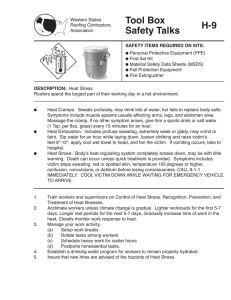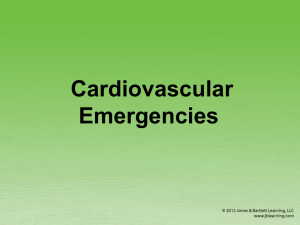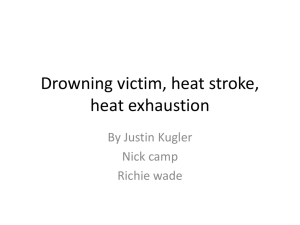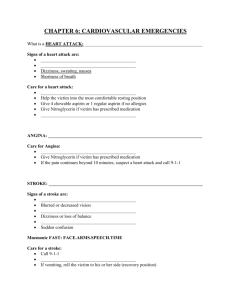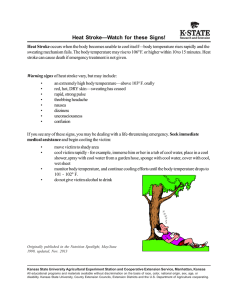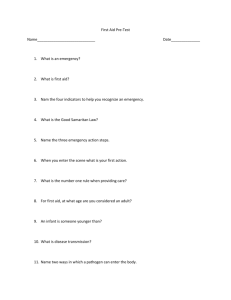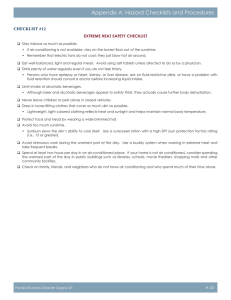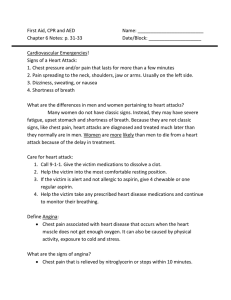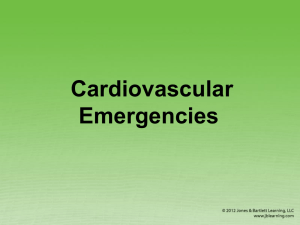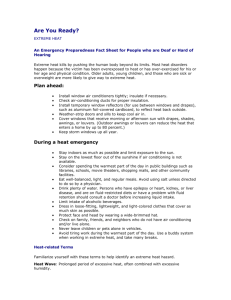IN-Symptoms
advertisement
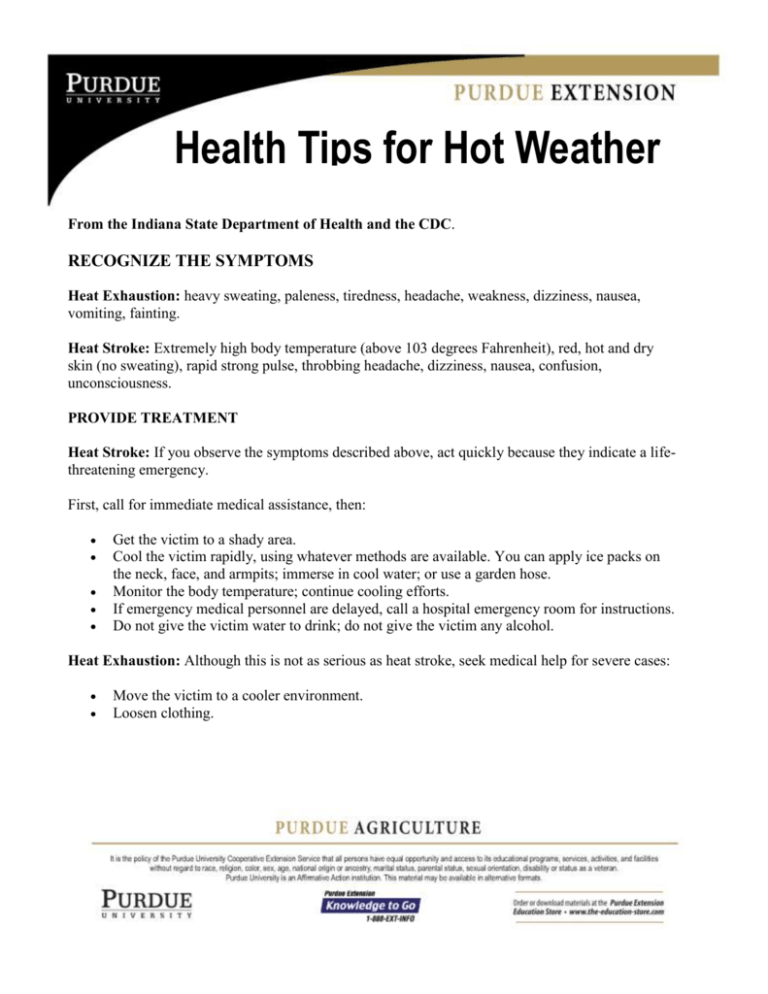
Health Tips for Hot Weather From the Indiana State Department of Health and the CDC. RECOGNIZE THE SYMPTOMS Heat Exhaustion: heavy sweating, paleness, tiredness, headache, weakness, dizziness, nausea, vomiting, fainting. Heat Stroke: Extremely high body temperature (above 103 degrees Fahrenheit), red, hot and dry skin (no sweating), rapid strong pulse, throbbing headache, dizziness, nausea, confusion, unconsciousness. PROVIDE TREATMENT Heat Stroke: If you observe the symptoms described above, act quickly because they indicate a lifethreatening emergency. First, call for immediate medical assistance, then: Get the victim to a shady area. Cool the victim rapidly, using whatever methods are available. You can apply ice packs on the neck, face, and armpits; immerse in cool water; or use a garden hose. Monitor the body temperature; continue cooling efforts. If emergency medical personnel are delayed, call a hospital emergency room for instructions. Do not give the victim water to drink; do not give the victim any alcohol. Heat Exhaustion: Although this is not as serious as heat stroke, seek medical help for severe cases: Move the victim to a cooler environment. Loosen clothing.
